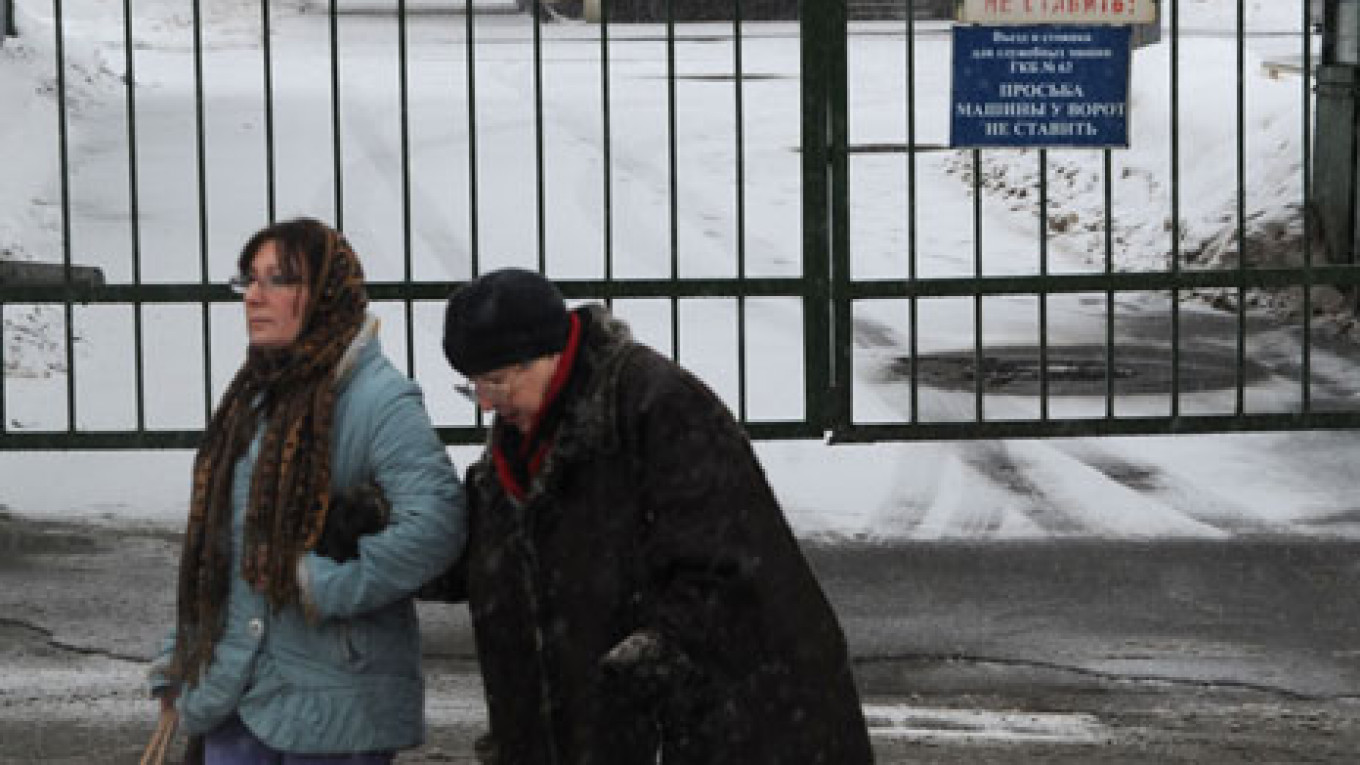While the need to draw private business into the provision of Russia's often dilapidated and underfunded social services is now widely recognized, a road map for doing so stirred up concern and skepticism among officials at the Gaidar Forum on Friday.
Economists hope that competition and private investment could spur improvements in the state's outdated education, health care and other social service infrastructure.
"It is time for us to recognize that the access of private business to the social sector is the prerequisite for rehabilitating the social sector itself," said Lev Yakobson, first deputy rector of the Higher School of Economics.
Yakobson chaired an interdepartmental task force that developed the road map over the past six months on the order of the Agency of Strategic Initiatives, a government-linked think tank.
The need to attract private businesses to health care, education and other social services was clear even before the economic crisis of 2008 to 2009, Yakobson said.
At that time, a study by the Higher School of Economics found that the government would be unable to cope with the needs of its population without the participation of private business.
It will not be easy, however. There are few government agencies prepared to work with nongovernmental institutions, and vice-versa, Yakobson said.
Furthermore, there can be no uniform solution — attitudes toward private enterprise vary in different parts of the country, as does the level of development in the private sector, he said.
To accommodate these disparities, the road map suggests supporting pilot projects in a number of regions, which could accumulate area-specific experience and function as agents of change in their territories.
However, any transfer of state functions to private enterprise could face opposition from regional governors, acting governor of the Kirov region Nikita Belykh said.
It is not yet clear who would be held responsible if there were an accident in a private business cooperating with the state to offer social services, and governors would be wary of becoming political scapegoats, Belykh said.
Officials from the Labor and Education Ministries supported the initiative but appeared skeptical about its ultimate chances of success.
One issue is that some social services are simply not profitable enough to attract private business, Deputy Minister of Labor and Social Protection Alexei Vovchenko said.
Of the 7,200 facilities across Russia that provide long-term care to invalids and the elderly, only 78 of them are privately run, and they tend to be much more expensive than their state-run alternatives, Vovchenko said.
In contrast, private business is already a major force in certain sectors of education, particularly higher professional and supplementary childhood educational programs that go beyond the baseline provided by the state.
These are the two levels of education not guaranteed to citizens under the Constitution, where private enterprise has space to make an impact, Deputy Education and Science Minister Natalya Tretyak said.
About half of higher professional education is provided by private institutions, Tretyak said.
The ministry has "already instituted a series of measures that should accelerate the development of nonstate education," including offering subsidies to state and nonstate institutions alike if they provide childhood education up to government standards.
Nonetheless, the ministry "does not expect to see a sharp increase in the involvement of nonstate entities in supplementary education," she said.
Although many questions remain, the issue has advanced considerably in just the past two years.
Previously the debate was about whether to encourage private business to enter the social sector at all, whereas now it has become a question of practicalities, participants in the discussion agreed.
Contact the author at [email protected]
A Message from The Moscow Times:
Dear readers,
We are facing unprecedented challenges. Russia's Prosecutor General's Office has designated The Moscow Times as an "undesirable" organization, criminalizing our work and putting our staff at risk of prosecution. This follows our earlier unjust labeling as a "foreign agent."
These actions are direct attempts to silence independent journalism in Russia. The authorities claim our work "discredits the decisions of the Russian leadership." We see things differently: we strive to provide accurate, unbiased reporting on Russia.
We, the journalists of The Moscow Times, refuse to be silenced. But to continue our work, we need your help.
Your support, no matter how small, makes a world of difference. If you can, please support us monthly starting from just $2. It's quick to set up, and every contribution makes a significant impact.
By supporting The Moscow Times, you're defending open, independent journalism in the face of repression. Thank you for standing with us.
Remind me later.






